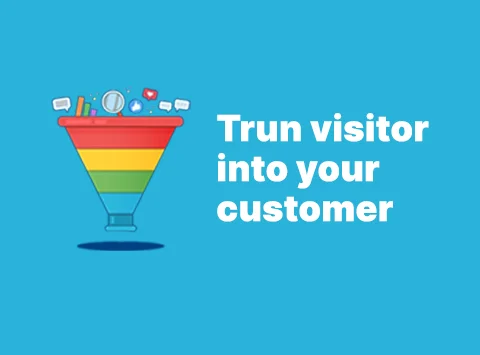In the ever-evolving landscape of online business, the significance of a well-crafted sales funnel cannot be overstated. A sales funnel acts as a roadmap, guiding potential customers through a structured journey from initial awareness to final conversion. In this blog, we delve into the pivotal reasons why implementing a sales funnel is crucial for the success and sustained growth of your website.
1. Strategic Customer Journey: Nurturing from Awareness to Conversion
A sales funnel provides a systematic framework for prospects to traverse through various stages of the customer journey. From initial awareness to consideration, decision-making, and finally, conversion, each stage is strategically designed to nurture leads and build a relationship with potential customers.
2. Efficient Lead Generation: Qualifying and Focusing Efforts
Sales funnels allow businesses to filter and qualify leads effectively. By segmenting potential customers based on their level of engagement and interest, you can tailor your marketing efforts to address specific needs, ensuring a more efficient use of resources.
3. Enhanced Customer Engagement: Building Trust and Credibility
As prospects move through the sales funnel, they engage with your brand at different touchpoints. This continuous interaction fosters trust and credibility, crucial elements in today’s competitive digital landscape. A well-nurtured lead is more likely to convert and become a loyal customer.
4. Personalized Marketing: Tailoring Messages for Maximum Impact
Sales funnels enable personalized marketing strategies. By understanding where a lead stands in the funnel, you can tailor your messaging to address their specific needs, pain points, and objections. Personalization enhances the overall customer experience, making your marketing efforts more resonant and effective.
5. Data-Driven Decision Making: Insights for Continuous Improvement
The structured nature of a sales funnel provides valuable data and insights. Analyzing key metrics at each stage allows you to identify bottlenecks, optimize processes, and make informed decisions for continuous improvement. Data-driven strategies lead to more efficient marketing campaigns and higher conversion rates.
6. Conversion Rate Optimization: Maximizing Returns on Investment
Sales funnels facilitate conversion rate optimization (CRO). By understanding the factors influencing conversion at each stage, you can implement targeted improvements to boost overall conversion rates. This results in a higher return on investment for your marketing efforts.
7. Measurable ROI: Demonstrating Marketing Effectiveness
With a sales funnel in place, you can measure the return on investment (ROI) of your marketing campaigns more accurately. This transparency allows you to allocate resources wisely, focusing on strategies and channels that deliver the best results.
8. Customer Retention and Upselling: Beyond the First Purchase
A well-structured sales funnel doesn’t end at the point of conversion. It continues to nurture and engage customers post-purchase, fostering loyalty and providing opportunities for upselling or cross-selling additional products or services.
In conclusion, a sales funnel is not just a marketing strategy; it’s a dynamic framework that guides potential customers through a purposeful journey, from initial awareness to becoming satisfied, repeat customers. It streamlines marketing efforts, enhances customer engagement, and empowers businesses to make data-driven decisions for long-term success. By understanding and harnessing the power of sales funnels, your website can transform leads into loyal advocates, driving sustained growth and prosperity.

